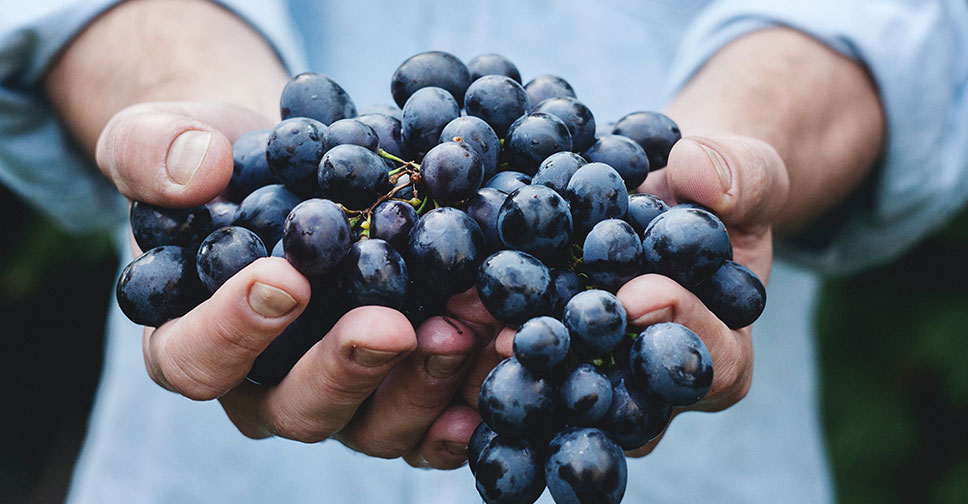
Should Dogs Eat Grapes?
Dogs are everyone’s best friend for a reason. They are kind, caring, and deserving of all our love, it’s no wonder this creates in us an urge to protect them in times of need. Dogs are very dissimilar to humans in many ways including what does and doesn’t affect them.
The first example that pops to mind is chocolate. Most dog owners are aware that chocolate is poisonous to dogs and can lead to significant illness, however, chocolate isn’t the only danger.
Many unsuspecting human foods could easily harm our pets without our knowledge. Dog owners may or may not know the risks that grapes pose but, with all of them in mind, let’s discuss the impact of dogs eating grapes.
Are Grapes Poisonous To Dogs?
Yes, grapes are a toxic substance to dogs and in severe circumstances, their ingestion can cause kidney failure. It is not only grapes that pose a risk to dogs. Raisins, currants, sultanas, and grape juice are toxic to dogs also. They are dangerous alone or cooked in biscuits and cakes so take care to check the ingredients of what you are feeding your pets.
The reason behind grapes’ toxicity to dogs is unknown and many theories have been dismissed. However, a set of symptoms with corresponding treatment has been found that limits the danger of grapes.
What Is A Toxic Dosage Of Grapes?
Whether peeled or seedless, grapes remain dangerous to dogs. The number of grapes that can poison a dog will differ based on their size. For example, if a small dog ate several grapes, they are more at risk than a large dog who ate the same amount of grapes.
There is no exact number of grapes to stay below as it varies across dogs. A very small amount may be fine depending on the size of the dog but generally, we recommend always being cautious and avoiding giving dogs grapes at all costs.
What Happens To A Dog If They Eat Grapes?
It is a terrifying situation to imagine as a dog owner but if your dog does consume grapes, they will develop a series of symptoms within a few hours.
When a dog eats grapes, the most common symptom is vomiting as their bodies naturally attempt to remove the toxin from the body. Other potential symptoms extend from diarrhoea, abdominal pain, and lethargy to a poor appetite, dullness, and blood in stool/vomit.
After 24 hours, symptoms of kidney failure may become visible to the owner which signifies an emergency. These include abdominal pain, problems with urination, minimal appetite, and mood changes that require you to visit a vet immediately, day or night.
What Should I Do If A Dog Eats Grapes?
1
If you notice that your dog is experiencing any of the symptoms listed above, the first recommended step is to contact your local veterinarian.
2
As an alternative, you can also call the Animal Poisons Helpline and the pet poison helpline will recommend a course of action based on the situation.
3
If you know that your dog has eaten grapes, remove the grapes from their mouth to begin if possible. After this, take them immediately to your vet for a health check. They will monitor your dog, induce vomiting, and check their kidney function.
The quicker that you get treatment for your dog, the less likely it is that severe symptoms such as acute kidney failure will appear.
Can A Dog Survive Eating Grapes?
If you have caught the early signs of grape poisoning, you are much more likely to have a better prognosis for your dog. Immediate treatment from your local veterinarian will prevent the absorption of the toxins in grapes into the body and reduce the likelihood of acute kidney failure.
However, if you have waited to take your dog to the vet until the following day, the risks of your dog’s survival are heavily impacted. After 24 hours, kidney damage is increasingly likely. Your vet will begin to monitor their blood work regularly and flush their symptoms with fluids and diuretics to increase urine production.
What Are The Long-Term Risks?
Depending on the number of grapes eaten and how treatment has affected your dog, there are several potential outcomes. When caught early, treatment is more effective. This means that your dog will recover faster and likely suffer from no long-term illnesses which is why we always recommend immediate treatment for your dog.
If caught later, there is a risk of long-term kidney disease which will require ongoing visits with your vet. For more severe cases, a dog’s kidneys may shut down. The dog will then stop producing urine and go into acute kidney failure with the risk of mortality. This is a higher risk if your dog is much older.
How Do I Prevent Grape Poisoning?
Avoid consuming grapes or products containing grapes in the same room as your dog due to the risk of any food being dropped. As well, try to keep grapes out of reach of dogs. Rather than placing your grapes in a food bowl on a table, place them on a high shelf in the fridge instead.
Be mindful of what food you do give your dogs and check their ingredients for any grapes or grape products that could pose a risk to your dog. It is at times a task but it is better to be safe than sorry.
